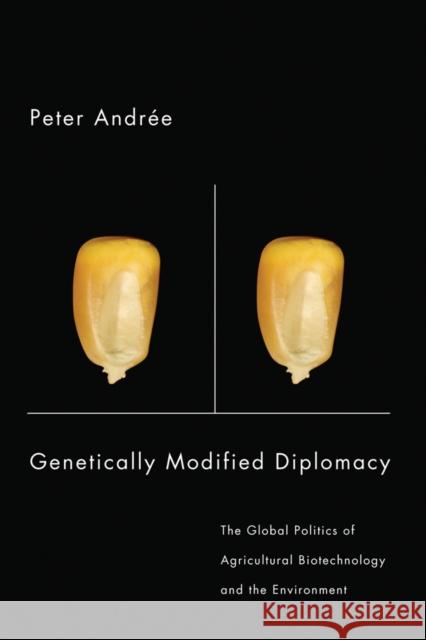Genetically Modified Diplomacy: The Global Politics of Agricultural Biotechnology and the Environment » książka
Genetically Modified Diplomacy: The Global Politics of Agricultural Biotechnology and the Environment
ISBN-13: 9780774812689 / Angielski / Twarda / 2007 / 336 str.
Genetically Modified Diplomacy: The Global Politics of Agricultural Biotechnology and the Environment
ISBN-13: 9780774812689 / Angielski / Twarda / 2007 / 336 str.
(netto: 405,81 VAT: 5%)
Najniższa cena z 30 dni: 420,89
ok. 22 dni roboczych.
Darmowa dostawa!
When genetically engineered seeds were first deployed in the Americas in the mid-1990s, the biotechnology industry and its partners envisaged a world in which their crops would be widely accepted as the food of the future, providing a growing population with improved nutrition and offering farmers more sustainable production options. Critics, however, raised a variety of social, environmental, economic, and health concerns regarding engineered crops. This clash in perspectives led to a protracted international struggle over the establishment of regulations for genetically engineered organisms (GEOs).Genetically Modified Diplomacy traces the emergence of a key outcome of this struggle - the 2000 Cartagena Protocol on Biosafety - and the discourse of precaution toward GEOs that the protocol institutionalized internationally. The precautionary view is a significant departure from the way the biotechnology industry first presented GEOs to the world. Peter Andr?e explains this reversal in the "common-sense" understanding of genetic engineering, and discusses the new debates it has engendered.Genetically Modified Diplomacy will be of particular interest to readers in the fields of environmental politics, biotechnology, and international relations.











